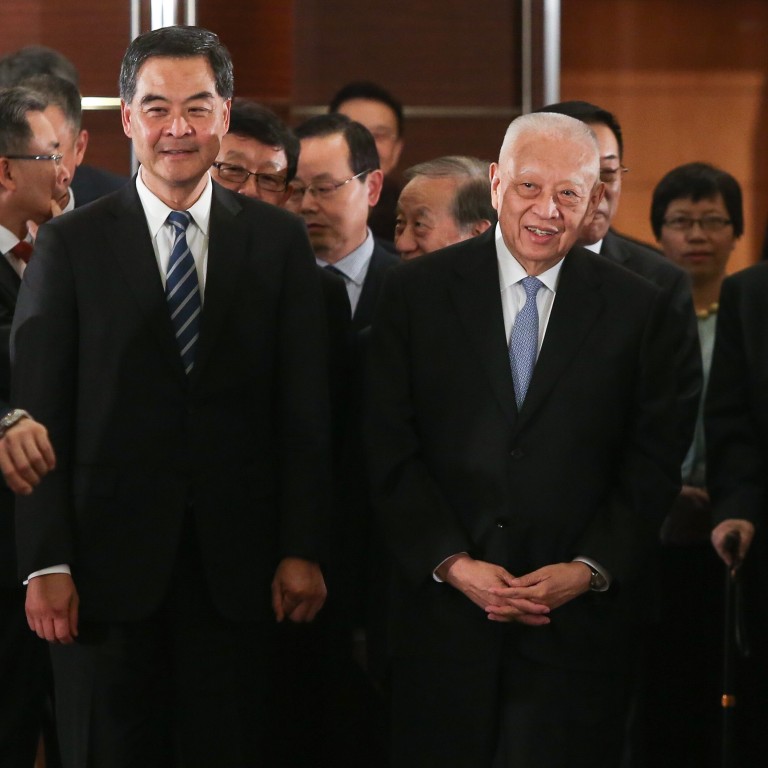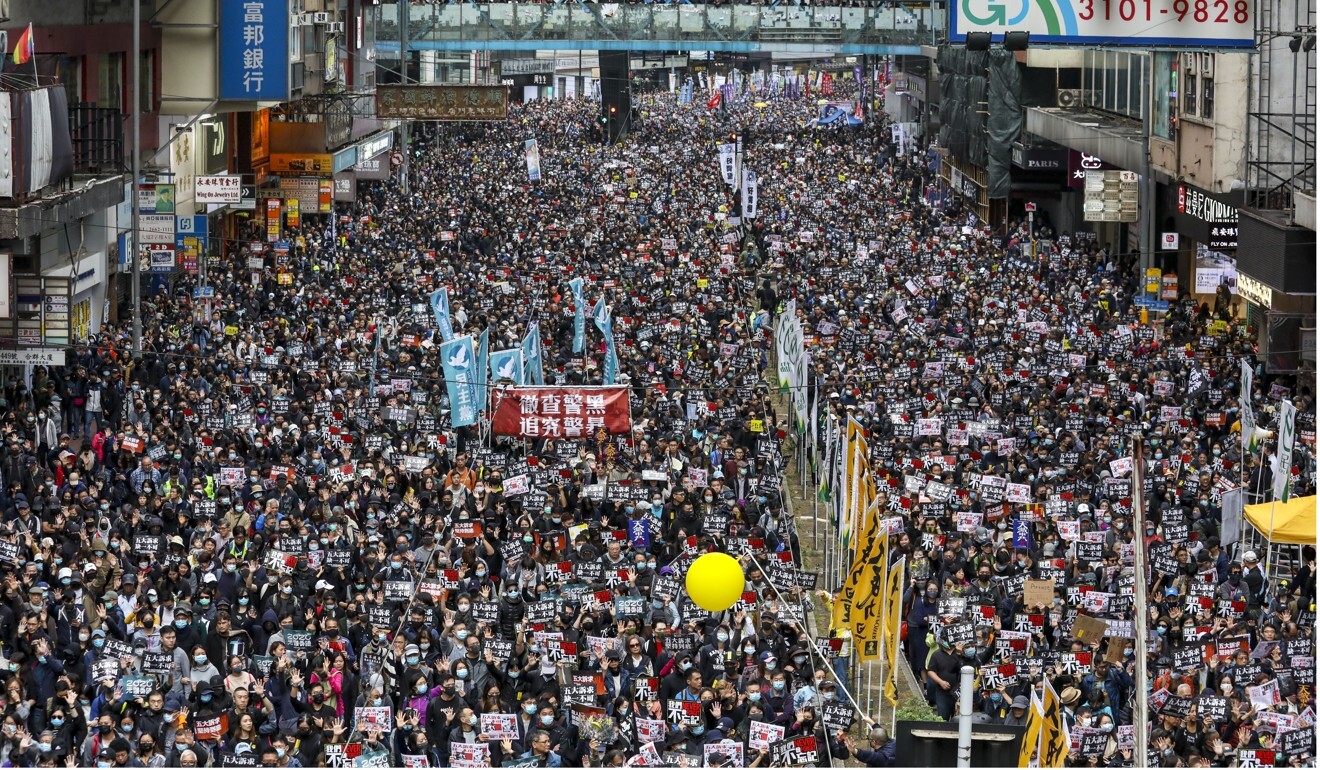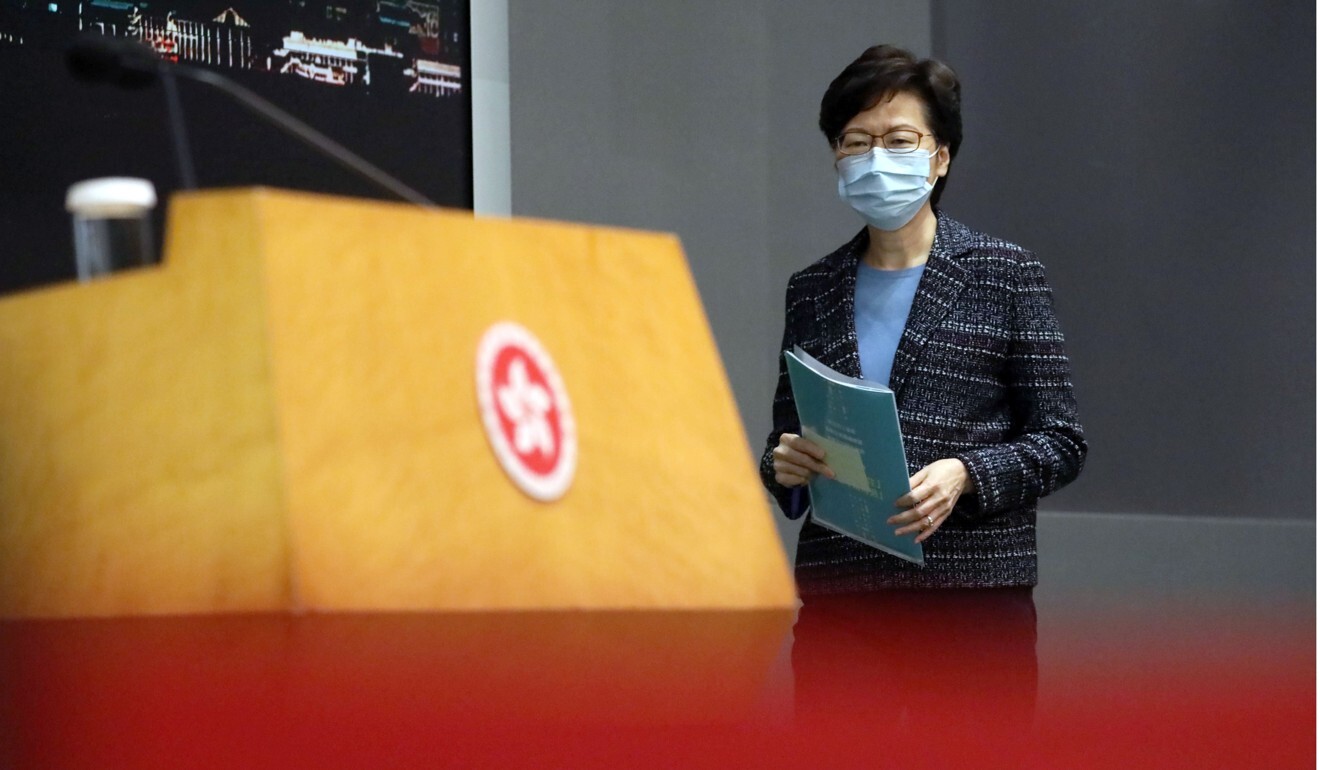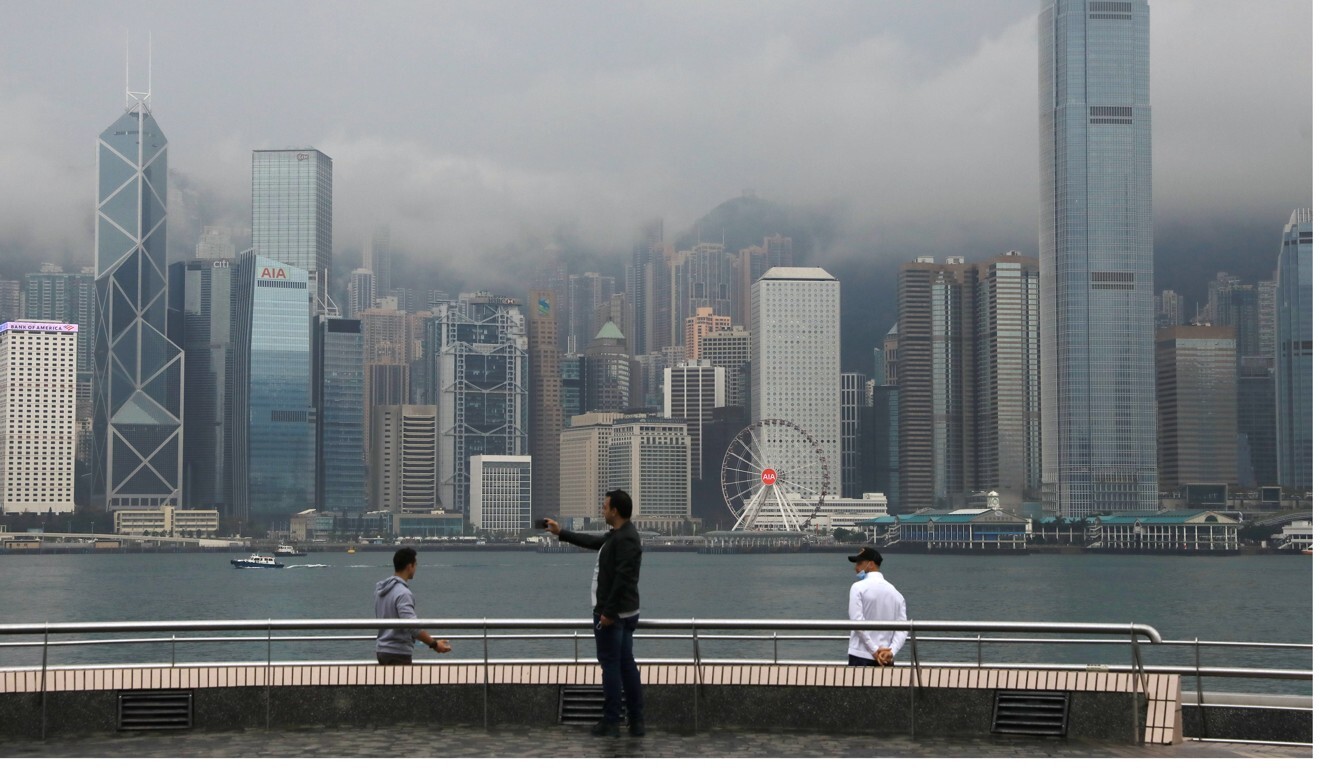
Hong Kong pro-establishment coalition to recruit 1,000 members to support coronavirus recovery efforts and counter protesters’ ‘burn with us’ mentality
- Conveners Tung Chee-hwa and Leung Chun-ying say alliance has not been set up to boost the camp’s chances in coming legislative elections
- Former city leaders say group will focus on livelihood issues such as helping university graduates to find jobs, and distributing masks in community
An alliance of pro-establishment heavyweights plans to line up 1,000 prominent figures from across society to support officials in reviving Hong Kong’s coronavirus-hit economy and counter the opposition camp’s “if we burn, you burn with us” mentality, according to two former city leaders.
They said the coalition would focus on livelihood issues such as helping university graduates to find jobs, and distributing masks in the community through a network of members.

Tung, the city’s first postcolonial chief executive from 1997 to 2005, said the coalition’s goal was different from that of the Our Hong Kong Foundation, a think tank he founded and has chaired since 2014.
He said that while the think tank’s name in Chinese was the “Unite Hong Kong Foundation”, it was the coalition’s task to bring the city together.
Hong Kong heavyweights assembling to boost pro-Beijing side ahead of Legco poll
“The purpose of running a think tank was not to unite,” Tung said, “but our new group will unite as many people as we can to solve pressing problems.”
Leung, Hong Kong’s leader from 2012 to 2017, said the coalition aimed to recruit 1,000 members from all walks of life, including the business, professional, youth and political sectors, to formulate projects in line with government policies.
He added their direction was endorsed by his successor, embattled city leader Carrie Lam Cheng Yuet-ngor.
“All our efforts are not for the upcoming Legislative Council elections,” Leung insisted.

Opposition candidates won most of the seats and seized control of 17 out of 18 district councils.
Asked how their platform could help mend the rift, Tung said: “We will do whatever we can for the sake of Hong Kong. We welcome those who hold different views and will try to persuade them to join us.”
Young voters now the most active in Hong Kong as turnout for under-35s doubles
But Leung, a fierce critic of radical protesters and who created a website to offer cash rewards to help track them down, had a different view.
“Yellow ribbons support a ‘burn with us’ mentality but we support stability. There’s an obvious contradiction between the two,” Leung said.
“I’m afraid the yellow ribbons do not agree with what we are now doing.”
Leung added that those who joined the coalition had to endorse its manifesto, which states it supports the “one country, two systems” principle under which Beijing governs Hong Kong, and opposes street violence and the protest movement’s “if we burn, you burn with us” mentality.

Beijing loyalist Tam Yiu-chung, the city’s sole delegate to the National People’s Congress Standing Committee, China’s top legislative body, joined the group as a director and secretary general.
Lau Siu-kai, vice-chairman of semi-official think tank the Chinese Association of Hong Kong and Macau Studies, believed the central government endorsed the founding of such a platform to help the embattled administration deliver relief measures.
“Uniting forces of patriots and large corporates has been viewed as an important task in the policies spelt out in China’s fourth plenum last year,” Lau said.
“If those livelihood projects are well delivered, it will indirectly boost support for the pro-establishment camp in the upcoming elections.”
If those livelihood projects are well delivered, it will indirectly boost support for the pro-establishment camp in the upcoming elections
But Chinese University political scientist Ivan Choy Chi-keung had doubts about the group’s effectiveness in uniting society with its livelihood programmes delivered by veteran pro-Beijing politicians.
“Societal rifts can only be mended by political solutions, instead of campaigns that focus on livelihood issues,” he said.
Tam said the coalition would be launched in either a public ceremony once the city had begun to recover from the pandemic, or through a live-streamed event if the coronavirus persisted.
He revealed that 11 prominent figures had joined the group as deputy secretaries general, including Basic Law Committee vice-chairwoman Maria Tam Wai-chu, National People’s Congress deputy Brave Chan Yung, and Federation of Trade Unions president Stanley Ng Chau-pei.

